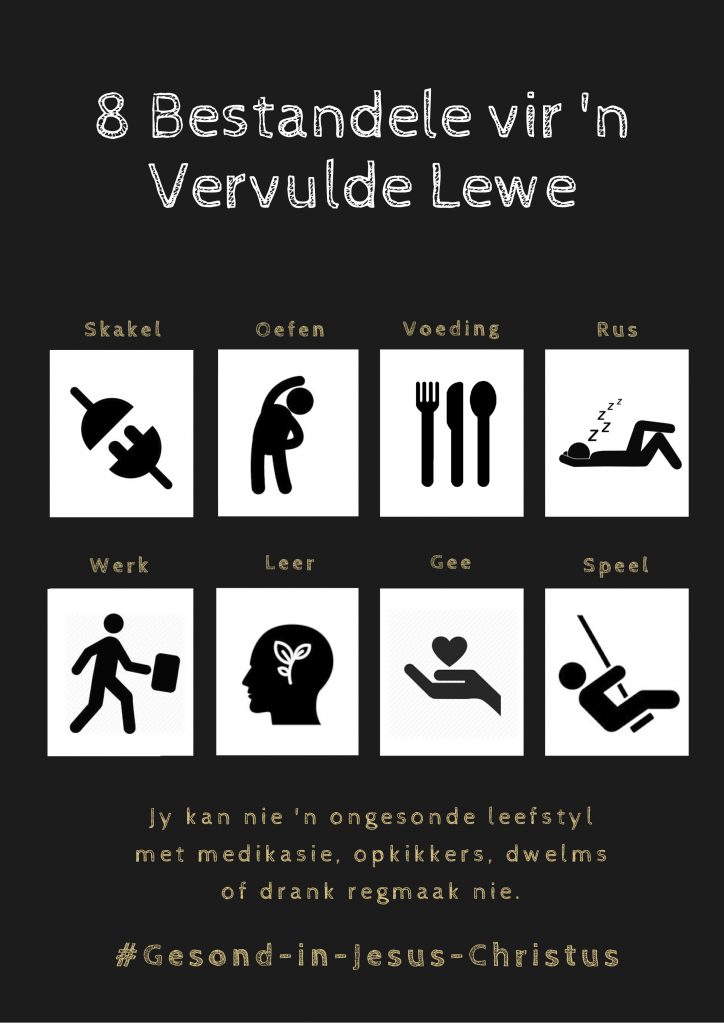God instituted marriage since Adam and Eve, (Gen 2:24) for us to experience the union that exists in the Godhead. (Joh 17:21) The trinity is a mysterious union of oneness. We do not worship 3 Gods, He is one. (Deut 6:4) Yet they are distinctively different. This unity of diversity is the end goal of the marriage relationship.
“ Have you not read that He who made them at the beginning ‘made them male and female,’ and said, “For this reason a man shall leave his father and mother and be joined to his wife, and the two shall become one flesh’? So then, they are no longer two but one flesh. Therefore what God has joined together, let not man separate” (Mat 19:4-5)
 The marriage ceremony symbolizes covenant. The giving of rings, an unbroken circle and symbol of eternity, the vows, pointing towards a lasting covenant made.
The marriage ceremony symbolizes covenant. The giving of rings, an unbroken circle and symbol of eternity, the vows, pointing towards a lasting covenant made.
In the Old Testament covenant procedure required blood: An animal was slaughtered to testify to the fact that we, after our death cannot change our will and testament. The emphasis is on: CANNOT! It is impossible to separate!
We may not feel “one” most of the time, yet like two containers of diverse sand mixed together, it is impossible to completely separate the two substances again. This oneness occurs and develops like a new tree planted, it grows and matures over time, become stronger and more evident.
You and your partner are more “one” than you may think.
Let’s look at some research being done over the last two decades on synergy and harmony in a long-term relationship.
Oneness instituted with first intercourse.
In Jewish culture, the marriage was consummated not with the solemn words of the preacher, but with the act of intercourse. In Biblical times, a couple consummated their marriage in a room, called the chuppah. After their union they would come out and the bed linen presented for the evidence of blood. This was to proof the chastity of the bride. It is obvious that God intended the consummation of marriage to be a covenant making between two individuals. The circuitry of the brain gets wired through first experiences: Should two individuals not wire together at the same time, writing a code of unity from the start? When we had sex with a number of people, our brain circuits becomes set in a certain way, it can be quite a challenge to find and bond with a partner with weird adapted circuitry.
The Bonding chemicals release with first intercourse
Jeremy Wiles explain the internal mechanism of our first sexual encounter well.
There’s a reason why breaking up from a sexual relationship is much more emotionally painful and much harder to forget than one that didn’t involve sex. There are several neurochemical processes that occur during sex, which are the “glue” to human bonding. Sex is a powerful brain stimulant. When someone is involved sexually, it makes him or her want to repeat that act. Their brain produces lots of dopamine—a powerful chemical, which is compared to heroin on the brain. Dopamine is your internal pleasure/reward system. When dopamine is involved, it changes how we remember. The other part is oxytocin, which is designed to mainly help us forget what is painful. Oxytocin is a hormone produced primarily in women’s bodies. When a woman has a child and she is breastfeeding, she produces lots of oxytocin, which bonds her to her child. For this reason, mothers will die for their child, because they’ve become emotionally bonded due to the oxytocin that is released when they’re skin-to-skin with their child. The same phenomenon occurs when a woman is intimate with a man. Oxytocin is released, and this makes her bond to him emotionally. Have you wondered sometimes why a woman will stay with a man who’s abusing her? We know now that it’s because she bonded to him emotionally because of the oxytocin released during sex. Men produce vasopressin, which is also referred to as the “monogamy hormone,” and it has the same effect as oxytocin has on a woman. It bonds a man to a woman. These “bonding” agents narrow our selection to one person. That is wonderful in a marriage relationship but really bad in a dating relationship because you lose your objectivity when you’re searching for your potential lifemate.[1]
All these chemicals working in the body have one obvious goal namely: oneness, bonding, intimate closeness and dependency on another. It is also true that physical sex do not satisfy the deepest of desire in the human spirit, we need to connect and synchronize soul and spirit to experience sustainable bliss.
Learn to Work together:
Elizabeth Bernstein writes in her blog “When It Never Gets Easier to Say Goodbye”:
Scientists believe the attachment system is an evolutionary process that humans developed to survive. Early hunter-gatherers learned to work together, and children perished without the care and protection of an adult.[2]
Over time we learn to develop an intricate pattern of working and operating together to deal with life over time. For example: One partner focuses on the finances, the other on child raising. The one partner knows how to use technology, the other one are good with building social relationships. We both add to the relationship based on our diverse personalities, values, skills and talents. This is why it is so painful when we detach from each other, the person you have relied on is gone. Once we move beyond the romantic phase, and the power struggle phase remaining committed we eventually begin to celebrate our differences. For it is our diversity that is really useful when it comes to teamwork. Initially we try to change our partners to be like us, but eventually we begin to see that it is their unlike-us-ness that is most useful.
Your relationship has a unique thumbprint
John Gottman says that all relationships have patterns, sort of like a thumbprint. And, that by witnessing just a small portion of the relationship pattern, (the thumbprint, if you will) he can make a fairly accurate call on whether the relationship will survive. Gottman has screened thousands of couples over more than 30 years, getting scientific proof on what make some relationships last and others fail. He has discovered that couples who argue more, is not necessary in more danger than seeming peaceful couples, the bottom line is the 5:1 ratio, 5 Times more positive experiences than negative ones. Each couple develops unique internal dynamics of problem solving, negotiating daily challenges. [3]
You Share a brain
Celia Harris and colleagues at Macquarie University recently reviewed their previously published and new research on social remembering by long-term intimate couples. “Remembering together – How long-term couples develop interconnected memory systems”
Together, couples were able to put together “richer, more vivid descriptions” of moments they’d shared, and, at times, the way one partner remembered something helped the other person see an old memory in a new light. Though, of course, we also know that human memory is incredibly faulty, and that a story can change from one telling to another. So it’s less that couples help each other remember an objectively accurate account of what happened and more like they help each other put the event in its proper emotional context. The memory-enhancing effect was most pronounced in older couples, and it worked better for partners who were kinder to each other and who reported having more intimate relationships, Fradera notes. Be nice to your partner; he or she may be the keeper of many of your memories. [4]
We create our own unique vocabulary.
Erin Brodwin writes the following in her blog about: “Science says these 5 things happen to couples that’s been together over a long time” I include her following points.
Ever get a text from your significant other that means absolutely nothing on its own but carries a certain significance that you can’t quite explain? This “insider” language is one of the first signs that the two of you are operating in sync, writes Shenk. According to a study from University of Texas professor of communication Robert Hopper, secret communication accomplishes two things: First, it helps deepen your bond — romantic or platonic. Second, it establishes a unique, shared identity. Private language can include everything from inside jokes to nicknames, writes Ohio State University psychologist Carol Bruess in a study of romantic couples. Bruess’ research suggests a link between how often partners use these private words and how satisfied they are with their relationship. Bruess found that the more often couples used secret words and phrases, the happier they tended to say they were. [5]
You start to sound alike
In addition to having their own private vocabulary, long term couples eventually “start to match each other in the basic rhythms and syntactical structures of their speech,” writes Shenk. Part of that is a result of a phenomenon that psychologists call “emotional contagion.” Basically, when two people spend enough time together, they begin to match each other’s speech patterns. We mimic everything from the other person’s accent to the amount and length of pauses he or she puts between words and sentences. There’s some evidence to suggest that these changing speech patterns can even serve as one indicator of how long a couple might stay together. Part of a 2010 study of language use among couples that looked at couples’ text messages, for example, found that when two people “sounded” more alike (in terms of the words and language structure they used in their messages) they were also more likely to still be dating three months later.
You have a bunch of inside jokes that no one else thinks are funny.
Research suggests that couples are more likely to mirror each other’s body language — which in turn makes them look alike — because they’re drawing from a wealth of knowledge that only they share. This “insider info” — all of your shared experiences and memories — informs your gestures, posture, and the words and phrases you use with each other. A 2007 study, for example, found that people were more likely to copy each other’s eye gaze when they’d both heard the same background information before their conversation.
You start to look alike.
University of Michigan psychologist Robert Zajonc conducted an experiment to test this phenomenon. He analyzed photographs of couples taken when they were newlyweds and photographs of the same couples taken 25 years later. The results showed that the couples had grown to look more like each other over time. And, the happier that the couple said they were, the more likely they were to have increased in their physical similarity. http://www.livescience.com/8384-couples-start.html In his influential 1987 study, psychologist Robert Zajonc found that there’s a very obvious reason that married couples start to look alike: They use the same muscles so often that, over time, they start to mirror each other. This coordination of movement isn’t accidental, says Shenk. Instead, it “reflects what psychologists call a ‘shared coordinative structure’ which includes how we harmonize our gaze, body sway, and the little mannerisms and idiosyncrasies of how we speak.
You stop self-censoring
The way most of us speak with strangers, acquaintances and even close friends is markedly different from how we talk when we’re alone with our partner.
When we’re with others, most of us “self-monitor.” That is, we try to please the people around us by adapting our behavior to suit theirs. But when we’re with an intimate partner, we let go of this pattern of behavior and instead “talk fluidly and naturally,” Shenk writes. In other words, we stop having to constantly check ourselves before we speak. We’re more candid and more open. Many of the pairs Shenk talks to in his book have such a relationship. University of California Berkeley psychologist Daniel Kahneman, for example, tells Shenk: “Like most people, I am somewhat cautious about exposing tentative thoughts to others.” But after he’d spent a few years working with his research partner, cognitive psychologist Amos Tverksy, “this caution was completely absent.”
You have unconsciously selected the best DNA for a healthy offspring:
Sheril Kirshenbaum writes a brief for CNN, on the science of kissing. The lips are the most exposed erogenous zone, and a good kiss can lead us to unconsciously coming back for more. These experiences lies deep in our unconscious mind and memory, because of the involvement of all our five senses, leading to attachment and bonding.
Beyond obvious mood spoilers such as poor hygiene and bad breath, we each have a distinct natural scent that appears to guide us toward choosing a partner with compatible DNA. Scientists have found that women prefer the scents of men with a complementary set of genes that code for the immune system. The benefit may be that if children come along down the line, they would be well-equipped to ward off disease. [6]
I hope I have made my point! We are more “one” than we think or feel. These attachments are mostly on an unconscious level, but we need to consciously agree and live a covenant lifestyle towards each other too.
 1) Understand the eternal value and quality of the covenant relationship. What a big difference will it make when we realize the problem is not your partner. The two of you are not that much different, you mostly want the same things. This is my experience with counseling couples over the years that both partners crave and desire the same things. The wife may complain that she does not feel loved and appreciated any more because the husbands is away a lot for business, the husband would complain that he does not feel connected with his wife, because she spends too much time with their children and her girlfriends.
1) Understand the eternal value and quality of the covenant relationship. What a big difference will it make when we realize the problem is not your partner. The two of you are not that much different, you mostly want the same things. This is my experience with counseling couples over the years that both partners crave and desire the same things. The wife may complain that she does not feel loved and appreciated any more because the husbands is away a lot for business, the husband would complain that he does not feel connected with his wife, because she spends too much time with their children and her girlfriends.
The Godhead exists because unity is always first on the agenda. They always begin from this premise. You will handle a disagreement differently, when you start from the point of what the two of you agree on. There is no escape, no separation, no hiding, no detachment – no divorce! We have to work it out. Divorce is simply never an option. We keep on engaging, trying, working it out, have love find a way, we keep on growing, becoming better. Do not take offence, and guard your hearts!
2) Covenant language. Many couples talk themselves out of marriage, because they have already separated in their hearts. Point 1 deal with the heart; point 2 deals with our words. We should never use the word divorce. We check our tone of voice. Our tone should always be respectful, mixed with honor. We speak life not death. Beware of complaining, murmuring and negative talk. Also be aware of criticism, contempt, stonewalling and defensive talk – John Gottman’s four horses of the apocalypse announcing the end and ruin of the relationship. Song of Solomon is a beautiful expression of the language of covenant partners in love! May we never stop to speak love poetry.
3) Covenant actions. Actions speak louder than words. What does our actions testify off? The proof is in the doing. Doing the small things, being kind, and mindful. Covenant decisions and loyalty. Is it loyal to your partner to share deep heart issues with anyone, but your partner? Quality time! Keeping one another informed. Do not take any decisions unless you are in agreement. This is the primary way to honor and respect each other. Gottman’s 5:1 ratio is all about positive bidding. The couples that continue to remain happy in the relationship are the ones that gets a 70 % positive result. This entails both parties denying of self. Dying to self and putting your partners needs first, is a powerful covenant action!
When our dog gets sick, we do not kill them, nor leave them to recover by themselves. We take them to a veterinarian. The same with our cars, when they break, we do not abandon them, and solemnly swear to never drive them again, rather we take them to a mechanic. Why do we give up on our marriages so easily? We are so reluctant to go for help, or go for counseling. We can read a book, or go to a marriage retreat. We can go to our pastor and get help. Marriage is holy, and worth fighting for!
[1] http://www.charismanews.com/opinion/39405-science-proves-premarital-sex-rewires-the-brain
[3] Why Marriages succeed or fail. John Gottman






